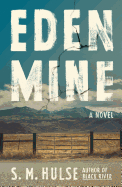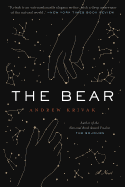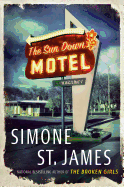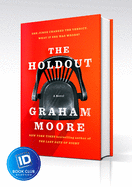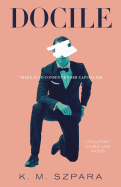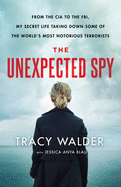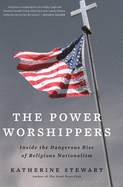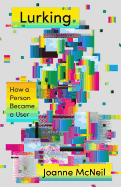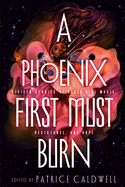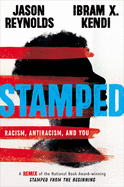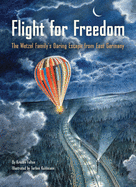 |
| (photo: Els Zweerink) |
Hilary Mantel is the author of 10 previous novels, as well as her memoir, Giving Up the Ghost. The Mirror & the Light is the long-awaited final book in her Thomas Cromwell Trilogy, a series of historical novels charting the rise and fall of Cromwell in the court of King Henry VIII. In the Man Booker-winning first volumes, Wolf Hall (2009) and Bring Up the Bodies (2012), Cromwell gained Henry's favor by helping to arrange his marriage to Anne Boleyn, as well as her subsequent execution. The Mirror & the Light (Holt, March 10, 2020) covers the final years of Cromwell's life and the complicated machinations that eventually led to his downfall.
Readers with a sense of history will know how Cromwell's story ends. Did that potential foreknowledge affect any writing decisions you made?
They know how it ends, but they don't know why. Also, surprise isn't the only tool in the writer's kit. Foreknowledge can operate well for you. It builds a sense of dread.
Did the research for The Mirror & the Light pose any special challenges compared to the previous books?
As Cromwell becomes a greater man, the range of his work and the number of his contacts expands. So the documentation becomes more complex, and simply keeping track of the personnel poses a challenge. Only a fraction of what the writer knows is going to get on to the page, but the more you can know, the more you want to know.
It seemed to me that The Mirror & the Light offers more insight into Cromwell's past than either of the previous books. Was there any particular ground regarding his character that you wanted to make sure you delved into in the concluding volume?
We know very little of his early life, but the decision to fictionalise more of his past seemed appropriate--as if under the pressure of events, the mechanisms of repression fail, and he must recast his own story. It is also the story of an evolving relationship. The most important person in his life is the king--and both king and minister are changing, getting older, maybe less hopeful. They are hardened by the challenges of survival, and confronting questions of legacy.
Speaking for myself, at least, it's difficult not to come out of the trilogy feeling like a Cromwell partisan. Would you like it if people came away from this trilogy feeling that Cromwell ultimately made the best of many impossible situations?
That's my feeling exactly. His whole career ought to be impossible, but he made it work through force of intellect and character. I don't deny that he was hard and ruthless--if he hadn't been, we'd never have heard of him. But I think he's interesting and in many ways admirable, in his ingenuity, his spirit, his appetite for complexity. As I see it, his errors were forced errors, and he was destroyed by an international situation that moved against him, rather than by any individual misjudgement. Other than the king's, of course.
I think when Wolf Hall came out it was thought of by many as a rehabilitation of Cromwell as a historical figure. With the trilogy finished, are there other aspects of this historical period that you hope to have reframed in the popular imagination?
I don't think of it as rehabilitation so much as a re-examination and re-focusing, and an exercise in sifting out some of the debris that's fallen into the historical record and been carried down the years. I hope that I can encourage my readers to be more enquiring about the received version of any era--you don't have to believe the first thing you're told.
One thing that your books take into account is the degree of physical pain Henry and others experienced on a daily basis. Do you think the omnipresence of this kind of pain changes his perspective in a way healthy readers today might struggle to understand?
Historians debate whether and why Henry's character changed in later life, and what exactly ailed him; it matters, because the personality of the ruler is a vital factor when one man has so much power. His illnesses (certainly in later life, outside the scope of my story) probably had an endocrinological component. But after an accident in 1536, he had an injury which caused him chronic pain, and made him inactive, so he lost his fitness and his admired athlete's body. Medicine of the time couldn't help him much. Even today there's a limit to what we can do about chronic pain. My less fortunate readers will understand that it doesn't make you a better person; I ask the pain-free to try to imagine it.
So much is going on at any one moment in The Mirror & the Light, and yet the story remains accessible. How do you balance capturing the complexity of history as it actually unfolded with accommodating the difficulty readers might have in following the dozens of characters, their relationships, events unfolding on top of each other, etc.? Are there particular strategies that you've honed when it comes to making the narrative accessible to readers?
I think there's a technique every novelist learns over the years, of dipping out of the book to become the reader, and running a check on what must be grasped at every stage. You have to assume an attentive reader--otherwise you're failing comprehensively--and you have to imagine that person to be at least as intelligent as you are, but less knowledgeable on this one topic. You're aiming at a level of complexity that will keep the reader nimble and alert, and also to engage head and heart, simultaneously. Pacing matters; sometimes I want to give the reader a breathing space, a passage where they don't have to learn anything, just dwell with the images and sounds. So I think it's valid to bring the politics to a halt while we admire a bowl of plums together.
What does it feel like to have finished the Cromwell trilogy after years spent writing in that world?
The TV version is in development now, and I am working towards a theatre production--so it will be my world for a long time yet. --Hank Stephenson
Hilary Mantel: Cromwell's Final Years
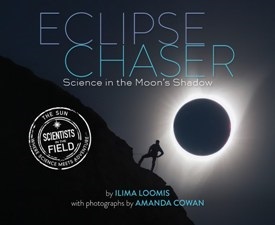 Solar physicist Shadia Habbal travels the world to study the sun's corona. In Eclipse Chaser: Science in the Moon's Shadow (Houghton Mifflin Harcourt, $18.99, ages 10-12) by Ilima Loomis, with photographs by Amanda Cowan, readers follow Habbal and her team of scientists in the United States as they prepare for the 2017 eclipse. Budding astronomers should find much to enjoy in these pages, and the Eclipse Chaser herself is likely to light a spark of interest in others as well.
Solar physicist Shadia Habbal travels the world to study the sun's corona. In Eclipse Chaser: Science in the Moon's Shadow (Houghton Mifflin Harcourt, $18.99, ages 10-12) by Ilima Loomis, with photographs by Amanda Cowan, readers follow Habbal and her team of scientists in the United States as they prepare for the 2017 eclipse. Budding astronomers should find much to enjoy in these pages, and the Eclipse Chaser herself is likely to light a spark of interest in others as well.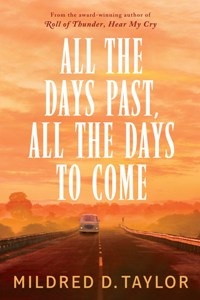 Newbery Award-winner Mildred D. Taylor concludes the Logan family saga in All the Days Past, All the Days to Come (Viking, $19.99, ages 12-up), a decades-spanning epic of self-discovery set against the backdrop of the U.S. civil rights movement. Taylor portrays coming-of-age as a lifelong process as Cassie faces discrimination, sexual harassment, pressure from her family and threats to her loved ones' lives. Teen readers and adults who fondly recall the Logans will appreciate the mature themes, as well as Taylor's great gift for writing about ordinary people in extraordinary times.
Newbery Award-winner Mildred D. Taylor concludes the Logan family saga in All the Days Past, All the Days to Come (Viking, $19.99, ages 12-up), a decades-spanning epic of self-discovery set against the backdrop of the U.S. civil rights movement. Taylor portrays coming-of-age as a lifelong process as Cassie faces discrimination, sexual harassment, pressure from her family and threats to her loved ones' lives. Teen readers and adults who fondly recall the Logans will appreciate the mature themes, as well as Taylor's great gift for writing about ordinary people in extraordinary times.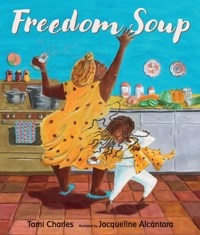 In Tami Charles and Jacqueline Alcántara's Freedom Soup (Candlewick, $16.99, ages 5-9), a granddaughter and grandmother create a traditional Haitian meal together, combining history and delicious food. The two prepare Freedom Soup, a stew made to celebrate the new year in most Haitian households. As Ti Gran instructs Belle on what ingredients to slide into the pot, she explains the origins of the soup, which doubles as the history of Haitian independence from colonialism and slavery. Charles's text is just as celebratory as Alcántara's images.
In Tami Charles and Jacqueline Alcántara's Freedom Soup (Candlewick, $16.99, ages 5-9), a granddaughter and grandmother create a traditional Haitian meal together, combining history and delicious food. The two prepare Freedom Soup, a stew made to celebrate the new year in most Haitian households. As Ti Gran instructs Belle on what ingredients to slide into the pot, she explains the origins of the soup, which doubles as the history of Haitian independence from colonialism and slavery. Charles's text is just as celebratory as Alcántara's images. 


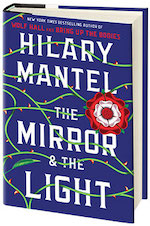


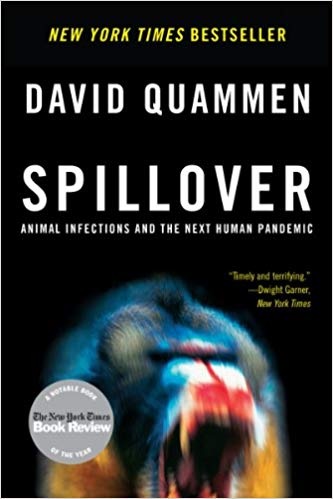 While the precise origin of the coronavirus currently sweeping the globe is unknown, it almost certainly originated somewhere in the animal world. The current primary suspects are horseshoe bats and pangolins, with the bats acting as a permanent reservoir for the virus and pangolins as the vector of transmission between bats and humans. Pangolins are endangered mammals (they look like crosses between anteaters and armadillos) that range across Africa, India and Southeast Asia. All eight pangolin species are under threat from habitat destruction and, more importantly, trafficking for their meat and scales. Though poaching is illegal in China, pangolins are frequently sold on the black market. This proximity to humans facilitates the spread of zoonotic diseases--pathogens that can jump from animals to humans.
While the precise origin of the coronavirus currently sweeping the globe is unknown, it almost certainly originated somewhere in the animal world. The current primary suspects are horseshoe bats and pangolins, with the bats acting as a permanent reservoir for the virus and pangolins as the vector of transmission between bats and humans. Pangolins are endangered mammals (they look like crosses between anteaters and armadillos) that range across Africa, India and Southeast Asia. All eight pangolin species are under threat from habitat destruction and, more importantly, trafficking for their meat and scales. Though poaching is illegal in China, pangolins are frequently sold on the black market. This proximity to humans facilitates the spread of zoonotic diseases--pathogens that can jump from animals to humans.